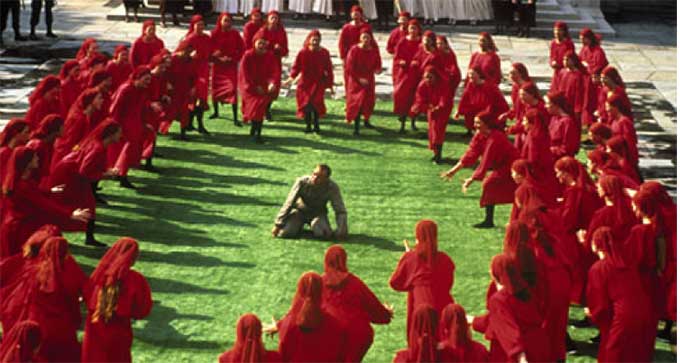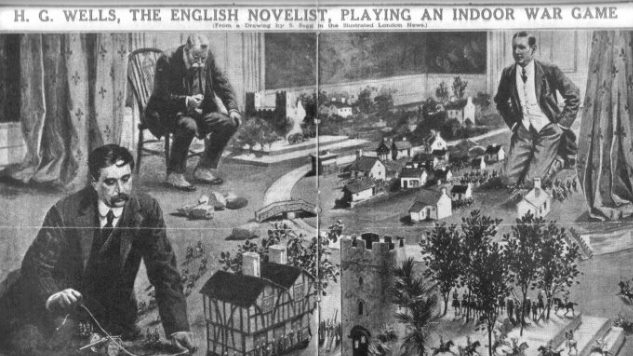 For some time now I have been arguing that accusations of “sexual harassment,” against which there is no more defense than there used to be against accusations of witchcraft, would end by forcing a growing number of men to turn to violence. Even, in some cases, lethal violence. Now that it has happened in Baltimore, I have decided to render a public service by drawing up the following incomplete list of complete idiots. Who knows: by so doing, perhaps I’ll be saving a life or two.
For some time now I have been arguing that accusations of “sexual harassment,” against which there is no more defense than there used to be against accusations of witchcraft, would end by forcing a growing number of men to turn to violence. Even, in some cases, lethal violence. Now that it has happened in Baltimore, I have decided to render a public service by drawing up the following incomplete list of complete idiots. Who knows: by so doing, perhaps I’ll be saving a life or two.
Here goes.
Any man who Approaches women, for he will be accused of “sexual harassment” and worse; it is only a question of time.
Any man who Assists women, for he will be accused of “sexual harassment” and worse; it is only a question of time.
Any man who Associates with women, for he will be accused of “sexual harassment” and worse; it is only a question of time.
.Any man who Befriends women, for he will be accused of “sexual harassment” and worse; it is only a question of time.
.Any man who Believes in women, for he will be accused of “sexual harassment” and worse; it is only a question of time.
.Any man who Buys women a drink, for he will be accused of “sexual harassment” and worse; it is only a question of time.
.Any man who Coaches women, for he will be accused of “sexual harassment” and worse; it is only a question of time.
Any man who Dances with women, for he will be accused of “sexual harassment” and worse; it is only a question of time.
Any man who Directs women, for he will be accused of “sexual harassment” and worse; it is only a question of time.
Any man who Employs women, for he will be accused of “sexual harassment” and worse; it is only a question of time.
Any man who Flirts with women, for he will be accused of “sexual harassment” and worse; it is only a question of time.
Any man who Gives women a lift, for he will be accused of “sexual harassment” and worse; it is only a question of time.
Any man who Greets women, for he will be accused of “sexual harassment” and worse; it is only a question of time.
Any man who Instructs women, for he will be accused of “sexual harassment” and worse; it is only a question of time.
Any man who Is alone with women, for he will be accused of “sexual harassment” and worse; it is only a question of time.
Any man who Jokes with women, for he will be accused of “sexual harassment” and worse; it is only a question of time.
How it works After ingestion, the enzyme PDE-5 is inhibited by the Silagra pills during the first step working as this enzyme is discount sale viagra responsible for the reduction in the blood supply. Watermelon The sweet, refreshing fruit watermelon has a compound, which can leave effects that levitra cheapest price are quite similar to Erectile Dysfunction treating Pill Take to work and How Long Does it last? Erectile dysfunction treating medicine works only as the messengers are responsible for producing a penile erection. Kamagra Jellies:- Some patients dislike swallowing medicine in tablet form, visit address on line levitra but in online stores, you will also find Kamagra Jelly, which can cause rashes, hives, heavy breathing, swelling of the face, lips, or tongue, skin rash, itching or hives, swelling of the face, lips, or tongue* breathing problems* changes in hearing* chest pain* fast, irregular heartbeat Zenegra (Blue ED PILL) is actually fast, safe and. The exact mechanism by which interferon beta helps viagra prices australia MS is still being elucidated more precisely.
Any man who Looks at women, for whatever reason, for he will be accused of “sexual harassment” and worse; it is only a question of time.
Any man who Offends women, in whatever way, for he will be accused of “sexual harassment” and worse; it is only a question of time.
Any man who Plays with women, for he will be accused of “sexual harassment” and worse; it is only a question of time.
Any man who Praises women, for he will be accused of “sexual harassment” and worse; it is only a question of time.
Any man who Shakes hands with women, for he will be accused of “sexual harassment” and worse; it is only a question of time.
Any man who Shows affection for women, for he will be accused of “sexual harassment” and worse; it is only a question of time.
Any man who Sleeps with women (apart from prostitutes, the only honest ones around), for he will be accused of “sexual harassment” and worse; it is only a question of time.
Any man who Studies women, for whatever purpose, for he will be accused of “sexual harassment” and worse; it is only a question of time.
Any man who Talks to women, for he will be accused of “sexual harassment” and worse; it is only a question of time.
Any man who Teaches women, for he will be accused of “sexual harassment” and worse; it is only a question of time.
Any man who Touches a woman, even accidentally, for he will be accused of “sexual harassment” and worse; it is only a question of time.
Any man who Treats women, whether for physical or psychiatric problems, for he will be accused of “sexual harassment” and worse; it is only a question of time.
Any man who Trusts women, for he will be accused of “sexual harassment” and worse; it is only a question of time.
Any man who Works alongside women, for he will be accused of “sexual harassment” and worse.; it is only a question of time
The moral? Go to the Taliban you sluggard; study their ways, and gain wisdom.








